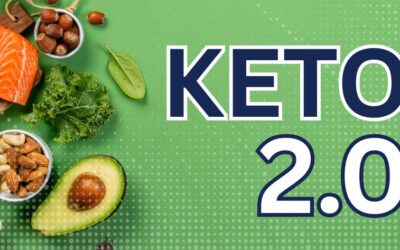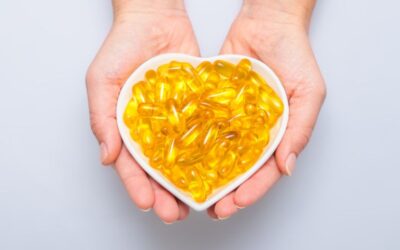Hydration isn’t just about drinking water. In fact, drinking only water can dehydrate you!
Hydration is about salt and water; not just sodium, but the complete salt with all of the natural electrolytes, balanced, the way nature intended.
Health Benefits of Hydration
Staying hydrated offers a multitude of health benefits across various bodily functions. Here are some key advantages of maintaining adequate hydration:
- Optimal Physical Performance: Adequate hydration supports physical performance by helping maintain endurance, strength, and coordination during activities and exercises. Adding electrolytes or salt to a pre workout drink can help improve workout performance.
- Temperature Regulation: Hydration plays a crucial role in regulating body temperature through sweating and evaporative cooling, which prevents overheating during physical exertion.
- Nutrient Transport: Water is essential for the transportation of nutrients, oxygen, and minerals throughout the body, facilitating proper cell function and metabolism.
- Joint Lubrication: Hydration helps maintain joint lubrication and cushioning, promoting joint health and reducing the risk of stiffness and discomfort.
- Digestive Health: Water aids in digestion and the absorption of nutrients. It helps prevent constipation by ensuring smooth movement of food through the digestive tract. Salt helps break down undigested fats.
- Detoxification: Hydration supports the elimination of waste products and toxins through urine, promoting kidney function and reducing the risk of kidney stones. The electrolytes and salt “plump” up the volume of the blood to easily eliminate the toxins.
- Cognitive Function: Proper hydration is essential for optimal cognitive function, including concentration, alertness, and short-term memory. In fact, during a strenuous mental task, more salt and water are depleted.
- Skin Health: Hydration contributes to skin elasticity, moisture, and a healthy complexion. Dehydration can lead to dry skin and can exacerbate certain skin conditions.
- Weight Management: Drinking water before meals can help control appetite and reduce calorie intake, contributing to weight management. Many people mistake salt and water cravings for sugar and hunger cravings.
- Heart Health: Maintaining fluid balance is crucial for cardiovascular health. Proper hydration supports blood circulation and helps regulate blood pressure. A deficit in salt or electrolytes can cause high blood pressure.
- Prevention of Headaches: Dehydration is a common cause of headaches. Drinking enough water with electrolytes like magnesium, sodium and potassium can help prevent and alleviate most headaches and migraines.
- Mood and Energy Levels: Hydration is linked to mood and energy levels. Even mild dehydration can lead to feelings of fatigue and irritability.
Different Types of Hydration

Did you know that there are two types of hydration? Intracellular (inside the cell) and extracellular (outside the cell). Both are important, but intracellular hydration is what most people think about when talking about the benefits of hydration. Extracellular hydration is needed to remove waste and toxins from the body but is also a sign of inflammation.
Intracellular Hydration
Intracellular hydration refers to the water content inside the cells of the body. Adequate intracellular hydration is crucial for maintaining various physiological processes and supporting overall cellular health. Here are key aspects related to intracellular hydration:
- Cellular Function: Water is essential for the normal functioning of cells. It serves as a medium for biochemical reactions, facilitates the transport of nutrients and waste products, and provides the necessary environment for cellular activities.
- Osmotic Balance: Intracellular hydration plays a role in maintaining osmotic balance within cells. Osmosis is the movement of water across cell membranes to equalize the concentration of solutes inside and outside the cells. This balance is crucial for cell integrity and function.
- Cellular Metabolism: Water is involved in cellular metabolism, including the breakdown of nutrients and the production of energy (ATP). Proper intracellular hydration supports these metabolic processes.
- Cell Volume Regulation: Cells have mechanisms to regulate their volume, and water plays an important role in this process. Maintaining the right amount of water inside cells is essential for their structural integrity and proper functioning.
- Electrolyte Balance: Intracellular hydration is closely linked to the balance of electrolytes (such as sodium, magnesium, potassium, and chloride) within cells. Electrolytes play a crucial role in cellular signaling, nerve transmission, and maintaining membrane potential.
- Cellular Communication: Adequate water content is necessary for efficient cellular communication. Signal transduction, which involves the transmission of signals within and between cells, relies on water as a medium for various molecules involved in the process.
- DNA and RNA Structure: Water is involved in maintaining the structural integrity of DNA and RNA molecules within cells. Proper hydration ensures the stability of genetic material.
- Temperature Regulation: Water helps regulate cellular temperature by facilitating heat dissipation through processes like sweating and evaporation.
What Happens When Salt Levels Are Insufficient?
- In response to not having enough salt, the body will pull magnesium, calcium, sodium, and potassium from the bones to trick it into believing it has enough magnesium and calcium. As a result, it will stop further absorption of those minerals.
- In order to hold onto more sodium, the body will sweat out more magnesium and calcium.
- Levels of aldosterone, a stress hormone, increase, and that will kick out more magnesium.
- The increase of stress hormones stiffen the arteries and increase chronic hypertension.
- There is a five percent higher heart rate when the body is salt deficient, and only an insignificant, one percent reduction in blood pressure.
- Without enough salt, there is an increase in insulin resistance and risk of diabetes; in fact, increasing salt may lower blood sugar.
- Low salt increases triglycerides.
- Without sufficient salt, the body’s salt gauge may get hijacked by sugar, drugs or alcohol, which increases risk for addiction.
Side Effects of Low Electrolyte Levels

Low electrolyte levels in the body can lead to various symptoms and signs. Electrolytes, such as sodium, potassium, calcium, chloride, phosphate, and magnesium, play crucial roles in maintaining the right fluid balance, nerve function, and muscle contractions.
Here are common signs of low electrolytes:
- Muscle Cramps: Electrolyte imbalances, particularly low levels of potassium, magnesium, or calcium, can lead to muscle cramps and spasms.
- Weakness or Fatigue: Insufficient electrolytes can result in muscle weakness and overall fatigue, impacting physical performance.
- Irregular Heartbeat: Electrolytes are essential for maintaining the electrical impulses that regulate the heart’s rhythm. Low levels can contribute to arrhythmias or palpitations.
- Nausea and Vomiting: Electrolyte imbalances, especially low sodium levels (hyponatremia), can lead to nausea and vomiting.
- Confusion or Disorientation: Changes in electrolyte levels, particularly sodium, can affect brain function and lead to confusion or disorientation.
- Dizziness or Lightheadedness: Low electrolyte levels may result in a drop in blood pressure, leading to feelings of dizziness or lightheadedness.
- Headaches: Dehydration and electrolyte imbalances can contribute to headaches and migraines.
- Excessive Thirst: Electrolyte imbalances can lead to increased thirst as the body tries to compensate for fluid and electrolyte losses.
- Fluid Retention or Edema: Abnormal electrolyte levels may affect fluid balance, leading to swelling or edema, especially in the extremities.
- Frequent Urination: Electrolyte imbalances, particularly low potassium, can lead to increased urination.
- Constipation or Diarrhea: Changes in electrolyte levels can affect gastrointestinal function, leading to constipation or diarrhea.
- Seizures: In severe cases, extremely low electrolyte levels, especially sodium, can contribute to seizures.
The Importance of the Sodium Potassium Pump for Hydration
The sodium-potassium pump is a vital mechanism that maintains the electrochemical gradient across the cell membrane in animal cells. It plays a crucial role in various physiological processes, including nerve cell transmission and muscle contraction. This shows why it is imperative to have electrolytes in the body for proper hydration and overall health.
Here’s How the Sodium-Potassium Pump Works:
- Structure: The sodium-potassium pump, also known as the Na+/K+ pump, is a protein embedded in the cell membrane, particularly in the plasma membrane of animal cells.
- Active Transport: The pump operates as an active transport system, meaning it uses energy in the form of ATP (adenosine triphosphate) to move ions against their concentration gradients.
- Ion Binding: The pump has binding sites for sodium ions (Na+) and potassium ions (K+). Initially, three sodium ions from the inside of the cell bind to the pump.
- ATP Hydrolysis: The binding of sodium ions triggers the hydrolysis of ATP, providing the energy needed for the pump’s activity.
- Phosphorylation: The energy released during ATP hydrolysis is used to phosphorylate the pump. This process involves the transfer of a phosphate group from ATP to the pump.
- Conformational Change: The phosphorylation causes a conformational change in the pump, leading to a shift in its structure.
- Release of Sodium Ions: The conformational change results in the release of sodium ions to the outside of the cell.
- Potassium Binding: With the newly acquired conformation, the pump now has an affinity for potassium ions. Two potassium ions from the extracellular fluid then bind to the pump.
- Dephosphorylation: The binding of potassium ions triggers dephosphorylation of the pump, where the phosphate group is removed.
- Return to Original Conformation: The removal of the phosphate group causes another conformational change, returning the pump to its original state.
- Release of Potassium Ions: The conformational change leads to the release of potassium ions into the cell.
- Cycle Repeats: The pump is ready for another cycle, and the process repeats to maintain the proper sodium and potassium concentrations on either side of the cell membrane.
By actively pumping three sodium ions out of the cell and bringing two potassium ions into the cell with each cycle, the sodium-potassium pump helps establish and maintain the electrochemical gradient essential for various cellular functions, including the transmission of nerve impulses and muscle contraction.
That's Right, Too Much Water Causes Dehydration!
As mentioned, salt and water go together; since water dilutes salt, drinking too much water can mimic having insufficient electrolytes, causing the identical stress response that comes from a loss of potassium and magnesium, the same cellular swelling or increased “extracellular” hydration, compromised cellular energy production, and ultimately dehydration.
Supplements To Support Optimal Hydration and Electrolyte Levels
Acceleradine® Iodine
Iodine not only hydrates the body, but also acts as a neutralizer for hydroxyl ions, contributing to cell hydration.
Its ability to eliminate oxidative stress stems from countering hydroxyl ions, powerful free radicals, resulting in a distinct antioxidant impact.
Dr. Donald Miller, MD, emphasizes that iodine presence prevents the formation of hydroxyl ions when combined with active oxygen, leading to the creation of water (H2O). This becomes crucial as many diseases are linked to chronic dehydration.
Another expert, Dr. Brownstein, suggests that iodine surpasses vitamin C, vitamin E, and phosphatidylcholine in antioxidant potency.
Through iodine supplementation, both antioxidant activity and immune system function are enhanced.
Accelerated Ancient Salt®
Accelerated Ancient Salt® stands as a unique, all-natural salt blend, including Himalayan salt sourced from the pristine Himalayan mountains in addition to pure salt from the Andes and Utah mountains. This blend, carefully curated for both its taste and health advantages, undergoes meticulous scrutiny and mining from sedimentary layers predating the contamination of man-made toxins.
The purity of Accelerated Ancient Salt®, without the use of synthetics or explosives sets it apart from other sources of Himalayan and specialty salts. The salt isn’t washed, bleached, heated, refined, or chemically processed, ensuring that every grain of Accelerated Ancient Salt® remains untainted by shells, rocks, plastics, microplastics, explosive residue, pollutants, bleach, anti-caking and free-flowing agents, preservatives, artificial ingredients, excipients, stabilizers, conditioners, or animal contamination.
Unlike most Himalayan or specialty salts, Accelerated Ancient Salt® is remarkably low in fluoride and explosive-free, in addition to being enhanced with scalar frequencies to promote detoxification and enhance intracellular hydration. As it holds a negative charge, this energy is strategically utilized to attract and eliminate positively charged toxins, parasites, and undigested fats.
Through quantum mechanics and capitalizing on superior raw material purity, a scalar field is generated to amplify the salt’s frequency. This heightened scalar energy helps reorganize DNA structure within the body. In its entirety, Accelerated Ancient Salt® stands unrivaled in delivering health benefits, including optimal true cellular hydration, detoxification, digestion, mental energy and physical energy.
QuintEssential 0.9
Referred to as “The Tonic,” this is raw seawater infused with Alpine spring water to precisely match the concentration of our bodily fluids. Its marine plasma closely mirrors human plasma, offering a multitude of benefits. Seawater contains all of the minerals needed by the human body in the right proportion, unlike any other electrolyte supplement. When QuintEssential 0.9 is introduced into the body, it is able to biochemically restore the biological terrain and impart its “blueprint”; as a result, the body shifts towards homeostasis.
The benefits include:
- Rapid health restoration
- Facilitating normal digestion
- Chloride content stimulates the production of hydrochloric acid in the stomach
- Swift homeostasis restoration
- Acting promptly to bring the body back to a balanced state
- Energetic transference
- Quickly shifting the bioterrain to achieve equilibrium
- Replenishment in Illness
- Effectively restoring the body during times of feeling unwell
- Promoting autonomic nervous system balance
- Supporting a healthy stress response
- Enhancing sleep cycles
- Aiding in calming the body before bedtime
Wild-Lytes
Wild-Lytes’ simple ingredients provide the needed electrolytes without oxalates or sulfur-containing compounds that can disrupt the detoxification pathways.
Wild-Lytes aids in balancing and supporting:
- Hydration & Electrolyte Equilibrium
- Detoxification
- Alleviating Muscle Cramps & Fatigue
- Boosting Immune Function
- Ensuring Proper Mineralization
- Supporting Heart and Cardiovascular Function
- Enhancing Adrenal Function
- Regulating Oxalate, Sulfur, and Uric Acid Metabolism
- Facilitating Lymphatic Metabolism
- Mitigating Histamine Flares
- Alleviating Joint Pain and Swelling
- Regulating Blood Sugar
- Promoting Skin Health
Ola Loa Multivitamin Drink
One main benefit of hydration is proper detoxification; some electrolyte formulas have ingredients that block the detoxification pathways and don’t support detoxification.
Ola Loa is designed to support methylation, homocysteine, and detoxification. Furthermore, it not only provides electrolytes, but also serves as a multivitamin containing vitamins, minerals and amino acids, including vitamin C, glycine, and TMG along with synergistic co-factors, coenzyme Q10, and acetylcysteine. It also contains arginine, lysine, selenium, chromium, folic acid and hydroxocobalamin, which all help to methylate homocysteine.
Lifestyle Hacks to Boost Hydration

Eliminate Processed Foods
Consuming processed foods can contribute to dehydration because these foods often contain high levels of sodium, artificial additives, and preservatives, which can lead to an imbalance in electrolytes. Sodium, commonly found in processed foods, has a dehydrating effect as it draws water out of cells and into the bloodstream, increasing the need for additional water to maintain proper hydration. Processed foods may also lack the natural water content present in whole, unprocessed foods.
Focus On Eating Wild Animal Protein
Wild animal protein, like bison, grass fed beef, and elk have more vitamins and nutrients than any other food on the planet. Furthermore, this food will eliminate your cravings for the processed foods that steal the electrolytes out of your body and cause intracellular hydration.
Adjust Water and Electrolytes According to Daily Activity
Water and electrolyte needs will increase with exercise, sauna, high temperatures and altitude.
In conclusion, maintaining proper hydration and electrolyte balance is crucial for overall health and well-being. Whether it’s through consuming the right foods, staying adequately hydrated, or replenishing electrolytes during physical activity, prioritizing these elements can enhance performance, support vital bodily functions, and promote overall vitality. By understanding the importance of hydration and electrolytes, we can take proactive steps to ensure our bodies function optimally and thrive.
Sara Banta
Sara Banta is a Stanford University Graduate with a Degree in Economics and Psychology, and a certified Natural Supplement Expert & Graduate of the Institute for Integrative Nutrition. Sara is the Founder of Accelerated Health Products and host of the health & wellness podcast, Accelerated Health Radio.
- Sara Bantahttps://sarabantahealth.com/author/sarabanta/
- Sara Bantahttps://sarabantahealth.com/author/sarabanta/
- Sara Bantahttps://sarabantahealth.com/author/sarabanta/
- Sara Bantahttps://sarabantahealth.com/author/sarabanta/









